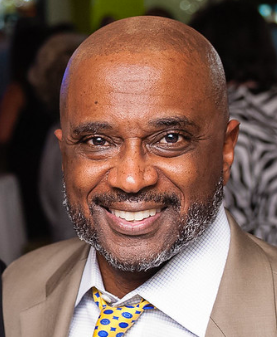The year that seems to be lasting forever, 2020, will be remembered not just for the world-wide COVID outbreak but for the short and long-term economic impact brought on by the pandemic.
That impact on colleges and universities is not only a 2020 event but will be felt for many years. This impact is causing all colleges and universities to re-think their fiscal model and modeling, including the use of their endowment.
Colleges and universities with larger endowments and access to unrestricted resources will weather the storm albeit changes will be required. The reality is that for many colleges, especially those with limited resources, COVID has accelerated having to face their economic realities.
We are writing this article to those institutions with smaller endowments and/or limited access to unrestricted resources that will require not just a re-thinking to respond and thrive in this COVID and post-COVID reality but a new form of consultation for that re-thinking. While we will leave the instructional choices to our academic colleagues, those decisions have to made with a fiscal reality linked to cash availability, cash flow and fiscal modeling.
Regardless of vaccines and/or treatments, the impact of COVID is not going to suddenly disappear. Colleges and universities, especially those with limited institutional resources, face a range of challenges around enrollment, tuition pricing, campus heath/safety, cleaning/maintenance protocols, athletics, and auxiliaries, to name a few.
Many institutions will need to make permanent cuts to their operating and capital budgets. Given the enormous uncertainty, a new type of fiscal model must be designed, a new type of language must be adopted, and a new type of guidance must be sought.
4 financial touchstones
The need to increase cash flow from nontraditional sources will place additional pressure to maximize the use of even the smallest of endowments. What is needed is a fiscal survive-and-thrive plan. However, historically, these smaller endowments have lacked access to the level of fiscal counseling/advising much larger institutions leverage.
More from UB: Have COVID’s pricing and learning disruptions opened a Pandora’s box?

Historically, most large endowment schools have leveraged the services of advisors that have significant Wall Street experience. That level of advisement not only gives them the level of knowledge of how to manage through today’s challenges while planning for tomorrow’s possibilities, they also have access to a wide range of fiscal tools.
Those resources come with a price tag. A price that many schools with limited resources/smaller endowments cannot afford. They are thus limited in the options available and the lack of appropriate counsel.
This model leaves many of these schools to “fend for themselves.” An inadequate model given the multiple challenges faced before COVID and has only become more difficult since March-2019.

In this environment, a new endowment advisory company is being developed to doing things differently and help universities developing new fiscal models. This company is focused on providing a “new normal” in regard to strategic financial planning and advice that is focused on the uniqueness of an institution.
Hunter Lewis was one of the co-founders of Cambridge and Associates in the 1970s. He helped develop an endowment advisory model that was appropriate for those times. Now, he wants to focus on the current times and has developed an advisory model with several touchstones that are appropriate given today’s environment.
Those touchstones include:
- Cost-conscious: Commitment to keep fees and other costs low (less than 1%)
- Conflict adverse: Goal to eliminate conflicts and to be fully transparent
- Risk-focused: Help with financial analysis and planning as to better understand risk
- Uniqueness: Helping each institution with a strategic financial analysis to determine the unique needs of the institution.
College leaders need reports that outline all fees and costs to gain a true picture of what investment returns. This, in turn, enables better fiscal planning that’s tailored to fit an institution’s needs and priorities.
C. Ray Hayes is senior director with Hunter Lewis LLC and has been in higher education his entire career. He is chancellor emeritus of the University of Alabama System. Troy A LeMaile-Stovall, an advisor to Hunter Lewis LLC, has been an award-winning C-level higher education executive most recently serving as COO at the University of the District of Columbia. They can be contacted at [email protected] or [email protected].
More from UB: Why tuition-free college may devalue degrees and deepen class divides






